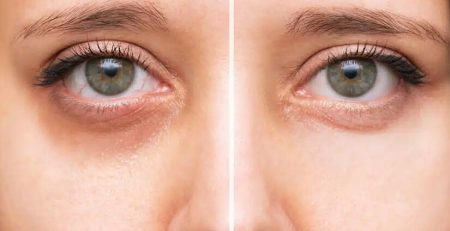Exploring Intravitreal Injections: Types and Cost Insights from the Best Eye Doctor in Delhi
Intravitreal injections have revolutionised the treatment of various retinal conditions, offering hope and improved patient outcomes. When it comes to seeking the best care, finding the right eye doctor becomes crucial.
In this blog, we will explore the different types of intravitreal injections and their purpose and delve into the cost aspects. Join us as we discover more about these remarkable treatments from the perspective of Dr. Anisha Gupta, the best eye doctor in Delhi.
Understanding Intravitreal Injections: Types and Purpose
In recent years, intravitreal injections have revolutionised the treatment of various eye conditions, offering targeted and effective therapy directly into the eye. Intravitreal injections involve the delivery of medication directly into the vitreous humour, the gel-like substance inside the eye. They have become a primary treatment method for several retinal conditions, including age-related macular degeneration (AMD), diabetic retinopathy, and retinal vein occlusion. These injections deliver targeted medication to the retina, bypassing other layers of the eye.
Common types of intravitreal injections include:
Generally, two types of intravitreal injections are used for eye treatment: anti-VEGF injections and steroidal injections.
Anti-VEGF Injections: These injections contain drugs that inhibit vascular endothelial growth factor (VEGF), a protein responsible for abnormal blood vessel growth. They are frequently used by the best eye specialists in Delhi to treat AMD, diabetic macular oedema, and retinal vein occlusion. There are several types of anti-VEGF injections available.
1- Ranibizumab
Ranibizumab was primarily used to treat various eye conditions characterised by abnormal blood vessels growth, such as age-related macular degeneration (AMD), diabetic macular edema (DME), and retinal vein occlusion (RVO). Typically, ranibizumab injections are given every 4-6 weeks, although the ophthalmologist determines the exact treatment schedule based on individual patient needs and response to the treatment.
2- Brolucizumab
Brolucizumab is another anti-VEGF (vascular endothelial growth factor) injection used for AMD treatment. Like other anti-VEGF treatments, brolucizumab is designed to target and inhibit the activity of VEGF. This protein plays a role in the development of abnormal blood vessels in the eye. It is administered every 12 weeks and is considered more potent and durable than some other options.
3- Aflibercept (EYLEA)
Initially approved for AMD treatment, aflibercept is now used for various eye conditions. This injection typically lasts for 8 weeks before requiring a repeat injection. Aflibercept has shown efficacy in treating DME, RVO, and diabetic retinopathy.
4- Other Intravitreal Injections
Apart from anti-VEGF injections, an age-old drug called Avastin is used for eye treatments. Avastin was originally developed for systemic conditions like lung cancer and colon cancer but has shown similarities in its effect to ranibizumab. But it is an off-label drug not approved for eye treatment.
Corticosteroid Injections: In addition to anti-VEGF injections, steroidal dexamethasone implants are also used to treat various eye conditions, such as uveitis and diabetic macular edema. These implants last for a period of 3-4 months. Dexamethasone implants are generally safe and FDA-approved, but known side effects exist. Cataract formation and glaucoma are the most common side effects associated with prolonged use of these implants. Regular monitoring by an ophthalmologist is crucial to detect and manage these complications.
The Cost of Intravitreal Injections
The cost of intravitreal injections can vary depending on several factors, including the type of medication used, the specific retinal condition being treated, and the location of the clinic. It is important to note that the cost may also include additional fees for consultations, follow-up visits, and diagnostic tests.
While it is challenging to provide an exact cost estimate without a personalised evaluation, it is recommended to consult with an experienced eye specialist, such as Dr. Anisha Gupta, to discuss the specific details and obtain an accurate understanding of the associated expenses.
Dr. Anisha Gupta: Delivering Expert Care
When it comes to intravitreal injections and retinal care, Dr. Anisha Gupta is the best eye doctor in Delhi. Her expertise in treating retinal conditions, including administering intravitreal injections, ensures patients’ highest standard of care. Dr. Gupta takes a personalised approach, thoroughly evaluating each patient’s condition and recommending the most suitable treatment plan.
Patients value Dr. Anisha Gupta’s compassionate demeanour, clear communication, and dedication to their overall eye health. As a trusted eye specialist in Delhi, she emphasises the importance of providing comprehensive care, addressing concerns, and guiding patients through every step of their treatment journey.
Conclusion
Intravitreal injections have transformed the management of retinal conditions, offering improved outcomes and a better quality of life for patients. When seeking the best care, consult with the experienced eye specialist, Dr. Anisha Gupta. Through her expertise and compassionate approach, she ensures personalised treatment plans and delivers the highest level of care for patients in Delhi.
Take the proactive step of consulting the best eye doctor in Delhi, Dr. Anisha Gupta, for a comprehensive evaluation and personalised guidance regarding intravitreal injections and retinal care.











